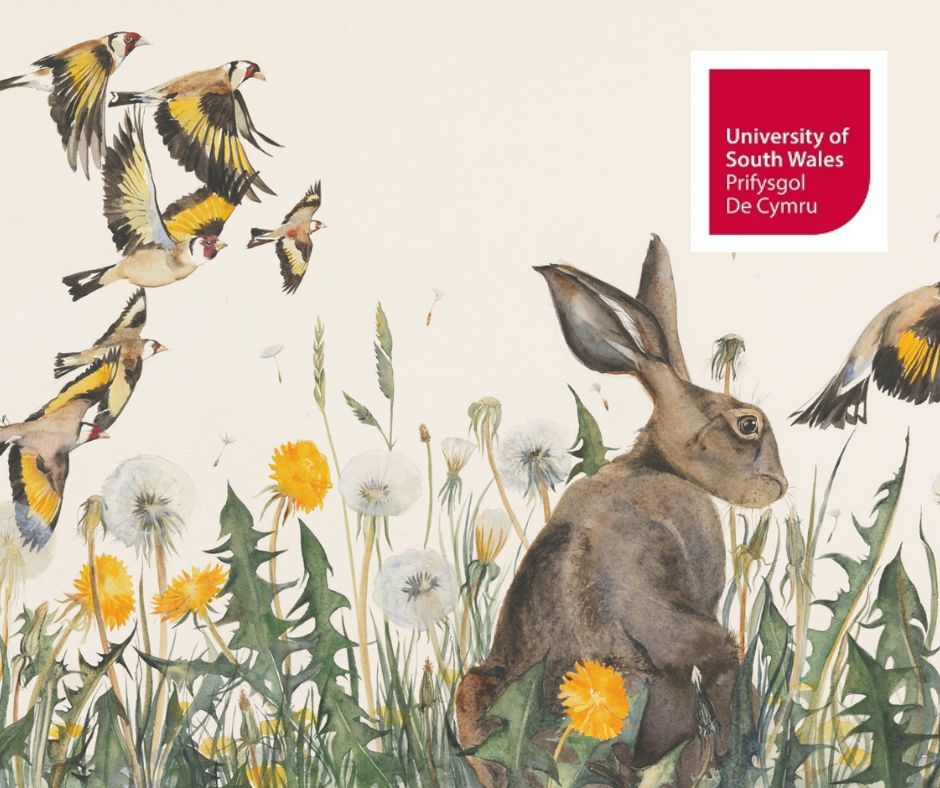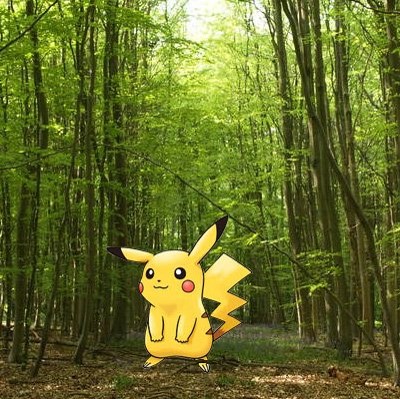
Students studying the BA (Hons) in Early Years Education and Practice at the University of South Wales (USW) study a module called ‘Children Learning through Landscapes’ that looks in depth at the theory and practice behind children learning in an outdoor environment.
Students engage in activity planning, based on thematic plans and ideas covering the Areas of Learning in the Foundation Phase Curriculum (WG, 2015). As student practitioners they observe and experience the benefits and the challenges of outdoor provision during their placements and have been able to consider the positive outcomes as well as the difficulties of outdoor pedagogies, which they have tried and tested in their own practice.
In 2018, the stimulus of ‘The Lost Words: a spell book’ (Macfarlane & Morris, 2017) created a lot of discussion in lectures and students were challenged by the notion that such important words were being removed from the Oxford Junior Dictionary. Students had seen the book in some of their settings, due to a funded project through Gwent Wildlife Trust (GWT), but they were concerned that the book was not being used as a learning stimulus and how removal of these words from children’s vocabulary would create barriers to children learning about their natural world.
"...a study from Britain, showed eight year olds could name Pokémon characters more easily than name otter, beetle and oak tree” (Louv, 2008). It was something they felt went against everything they were learning ‘How can you care for it if you don’t know its name or where it lives?’, they felt action was needed.
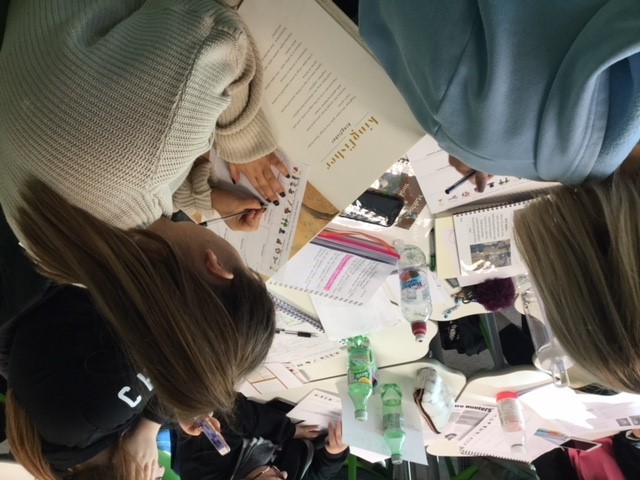
The Year 2 Early Years (EY) Education & Practice students, took on this project and decided that they needed to support this beautiful ‘spell book’ by creating a toolkit of teaching ideas which could support early years practitioners in helping to re-wild children’s language as well as their experiences outdoors. They wanted to help ‘The Lost Words’ to be spoken, drawn, collaged and of course understood by the children. They wanted children to be captivated by these living species which share our landscapes, so they could learn that ‘stewardship’ of the planet is everyone’s responsibility.
The toolkit has been formatted in a way that offers some structure to the layout in terms of the chosen ‘Lost Words’. Each Lost Word has a thematic plan and one or more lesson plan ideas, which have been linked to the Welsh Foundation Phase curriculum (WG, 2015). The thematic planning also encouraged students to consider the transition of these ideas to support the new Welsh Curriculum currently in draft, as this will allow ideas to be applied flexibly. The new Curriculum for Wales (WG Draft 2019) is emerging and the structure and approach lends itself to the thematic planning utilised in this toolkit, thus supporting practitioners through the transition using a holistic approach to learning & teaching.
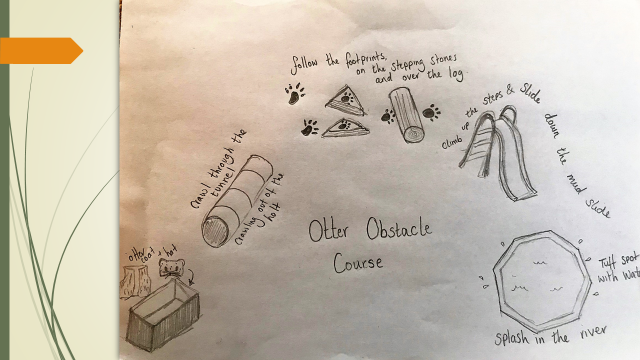
In applying their ‘Lost Words’ ideas to their own practice there was some really interesting feedback from students which was both positive as well as challenging in a number of ways.
Some students were experiencing difficulty in getting children outside in some settings, which could be attributed to a number of issues, including staffing, space and often practitioner confidence. However, offering some well-planned suggestions meant that students were given opportunities
to try their activities out and most were received favourably.
In many cases it was noted that children were more competent physically than some practitioners had expected, and they remained engaged in the activities for longer periods than anticipated, showing interest in their learning. This encouraged the students to continue to develop their outdoor activities around the Lost Words theme, as their feedback corroborated the research they had studied as part of their module.
Outdoor play allows children to develop physical coordination, balance and control; it can be made up of small but significant experiences that afford children ‘everyday adventures’. It provides unpredictable but essential elements of growing up, of making judgements about their physical abilities,
taking risks as well as making friends. But they depend on being ‘out and about’ and not being closeted indoors (Gill, 2007).
When learning is active and made real through use of all the senses the greater the long-term retention of that constructed knowledge (Clarke 2006), so it is consequently more memorable for the learner. Thus, in the context of the Lost Words it was made relevant to understanding living things. For example, Jemma’s lesson on ‘Otter’ Obstacle course in the Toolkit (Fig.1), which offers a focus on physical development whilst embracing language and knowledgeable facts about otters and their movements and habitats.
Therefore, the EY students at USW consider outdoor learning as a pedagogy that can harness learning about the fundamentals by getting outside and connecting children to nature. Many researchers believe that the loss of natural habitats and the restrictions we make on allowing children outside to play, escalates children’s disconnection from nature, which can have implications for human health both physical and mental, as well as child development (Louv, 2009; Palmer, 2006).
We have been really delighted by the interest in the toolkit, with many practitioners feeling excited about the ideas it offers and of course how it supports the great delights of the real ‘Lost Words’ in our environment. An outdoor schools coordinator has responded by saying….
"I am absolutely delighted to be sharing this brilliant resource with the teachers who I’m sure will be hugely appreciative, and the students who will be immensely inspired."
We are grateful to all those who have supported the students with this project including Gwent Wildlife Trust, and Natural Resources Wales who have helped to translate the resource into Welsh to support the Welsh medium delivery of ‘Geriau Diflanedig’ and in its promotion.
Consequently the development of ‘The Lost Words’ teaching toolkit was driven by a very real motivation to help improve all of these things, to connect children to their natural world and to ensure that learning could be fun, memorable and holistic in approach so that meaning is made and understanding is retained. The toolkit is currently available for practitioners to access free of charge from Hwb (see link below).
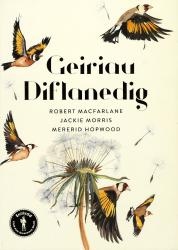
EXCLUSIVE MEMBER'S OFFER!
Early Years Wales is delighted to be able to offer members the opportunity to claim a copy of Geiriau Diflanedig (The Lost Words) by Robert Macfarlane, illustrated by Jackie Morris and translated by Mererid Hopwood for free (+ Postage and Packaging, £5).
This beautifully designed winner of children’s book of the year 2018 is a joyful celebration of all things nature. For more information and to order your copy today visit: https://www.earlyyears.wales/en/product/geiriau-diflanedig-lost-words
PLEASE NOTE: this offer is available to current Early Years Wales members only and stocks are limited. Once they're gone, they're gone!
| Attachment | Size |
|---|---|
| 446.61 KB |
- Clarke. S., (2006). Mills and Millipedes. Benefits of using urban settings for outdoor learning activities. Synergy Learning. Available at: www.synergylearning.org. (Accessed July 2018)
- Louv, R. (2009). Last Child in the Woods; saving our Children from nature deficit disorder. 2nd edn. London: Atlantic books.
- Macfarlane, R. and Morris, J. (2017) The Lost Words: A spell-book. Hamish Hamilton at Penguin Books.
- Palmer, S. (2006) Toxic Childhood: how the modern world is damaging our children and what we can do about it. London: Orion books
- Wales. Welsh Government (2015) Foundation Phase Framework. Cardiff: WAG
- Wales. Welsh Government (2019) A New Curriculum for Wales. Cardiff: Crown copyright

